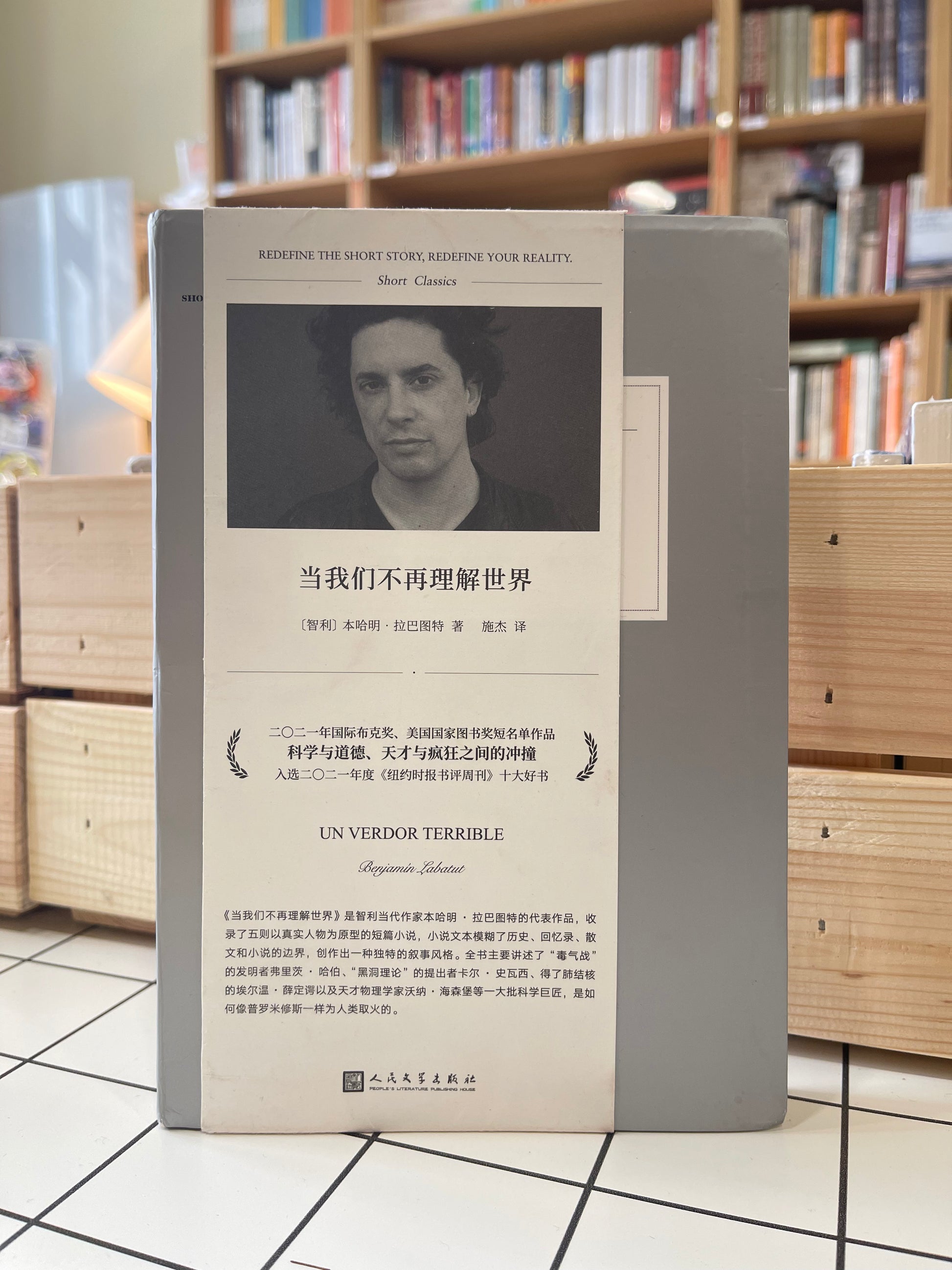WULOLIFE
二手书《当我们不再理解世界》【8成新】
二手书《当我们不再理解世界》【8成新】
Couldn't load pickup availability
Description
内容简介 · · · · · ·
◆编辑推荐:
★二〇二一年国际布克奖、美国国家图书奖短名单作品!
★入选二〇二一年度《纽约时报书评周刊》十大好书!
★入选奥巴马二〇二一年夏季阅读书单!
★《纽约客》《华尔街日报》《出版人周刊》《卫报》等推荐作品!
★ 科学与道德、天才与疯狂之间的界限究竟在哪里?
★ 打破真实与虚构的边界,创造出一种迷幻而冷峻的叙事风格。
◆我很痛苦,又感到很无助,眼睁睁看着我的时间观念、我坚定的决心、我的责任感和分寸感都被一并摧毁! 这美妙的地狱,除了你们,还能归功于谁呢?请您告诉我,所有这些疯狂是从何时开始的?我们从什么时候起就不再理解这个世界了?
——《当我们不再理解世界》
◆内容简介:
智利当代作家本哈明·拉巴图特的代表作,收录了五则以真实人物为原型的短篇小说,小说文本模糊了历史、回忆录、散文和小说的边界,创作出一种独特的叙事风格。全书主要讲述了“毒气战”的发明者弗里茨·哈伯、“黑洞理论”的提出者卡尔·史瓦西、得了肺结核的埃尔温·薛定谔以及天才物理学家沃纳·海森堡等一大批科学巨匠,是如何像普罗米修斯一样为人类取火的。
◆媒体推荐:
拉巴图特将哥特式小说的光芒投射到了二十世纪的科学上,在五个自由而浮动的小插曲中,讲述了知识与破坏、光辉与疯狂的血缘关系……
——《纽约时报书评周刊》
这本书与温弗里德·塞巴尔德或奥尔加·托儿卡丘克的作品有着家族关系:一系列叙述歪曲传记,但也冒险进入想象领域。这本书里的故事相互嵌套,它们与现实的联系点几乎不可能完全确定。
——《纽约客》
黑暗而耀眼!拉巴图特展示了恐怖与美丽、拯救生命与毁灭生命之间难以割断的联系。这本书——尽管博学而令人难以忘怀——顽固地坚持将科学进步的奇迹与历史的暴行联系起来。
——《华尔街日报》
拉巴图特提供了一种修饰的、异端的、彻底引人入胜的描述,讲述了引发二十世纪一些最伟大科学发现的个性和疯狂的创造性。作品的主题是人类探索的全部动力和其中的危险。
——《出版人周刊》
拉巴图特写了一部反乌托邦非虚构小说,背景不是未来,而是现在。
——《卫报》
